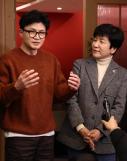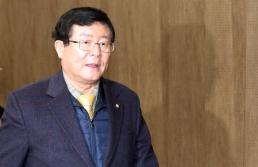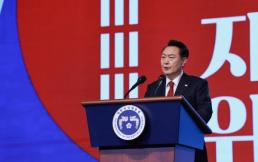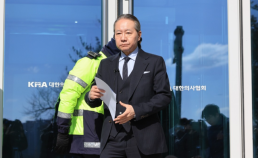Konosuke Matsushita, well-known as “the god of management”, is the founder of Panasonic, the world’s class electronics company in Japan.
Under his leadership, Matsushita devoted himself to employees’ welfare unlike other Japanese companies which used to be notorious for being stingy with investment for workers. He is literally the first CEO who introduces the concept of “lifetime employment”. It is not an overstatement saying that what is known as the current human resource system such as seniority is the masterpiece done by Matsushita.
He also presented a management strategy one step ahead of his time by implementing the system of 5-day work week. In addition, he was the first manager in Asia to adopt the idea of segmenting the business by region or product.
As a result, Matsushita not only transformed Matsushita Electric Industrial Co. to the leading international company even without capital of his own, but his company played a critical role in placing Japan into the country with the largest economy in the world.
Samsung Group’s founder Ho-am Byung-chull Lee shares many aspects with Matsushita, leading Samsung into the world’s first class company.
Priority to human resources was Ho-am’s first principle in management. Samsung was, in fact, the first company in Korea to introduce the open recruitment. He also built the dormitory for employees in factory plant of Samsung’s subsidy Cheil Industries in the 1970s, which is rare after taking into consideration then management environment. Ho-am wanted to provide safe place to live for young female factory workers who moved from countryside to city for better life.
Ho-am is in parallel with Matsushita in that the founder of Samsung level up Korea – which was burnt to ashes after Korean war - to the world class country within half century.
As a matter of fact, Ho-am often mentioned the importance of economic contribution to the nation, based on his firm belief that national prosperity can only lead successful business and people’s welfare.
“I was called a millionaire only 2 years after the establishment of CheilJedang Corp., which is quite enough just for myself. But, I was looking for a new project to contribute to our new country,” he said in the autobiography.
His aide also remembered Ho-am’s loyalty to nation.
“The chairman always said that there is a business that you should not go for in spite the potential to make high profit and there is a business that you should go for in spite of the possibility to see loss,” said Jung-myung Jeong, a close aide to Ho-am in an interview with a monthly magazine.
He added that it was the reason why Samsung decided to invest into semi-conductor project which was considered to be urgent for national interest and competitive enough for the company to survive in the global market.
Now the semi-conductor industry is the one of growth engines for the Korean economy, but back in the initial stage the government and media expressed strong concerns over the statement saying that Samsung decided to advance into the semi-conductor market. Despite such an opposition, Ho-am pushed the business forward for the sake of the future of Korean economy.
He, in fact, did not see sales in semiconductor division go into black. But, the successor Kunhee Lee made his father’s ambition reality by putting the company on the 1st place in memory chip production.
Some say Ho-am achieved more results than Matsushita, given that Samsung is currently far more advanced than Panasonic in terms of technology and business scale. Samsung topped the list of global TV markets for 4 consecutive years and narrowed the gap with No. 1 cell phone maker. The display business such as LCD is also thought to be the world’s best.
Ho-am’s insight on the importance of information also played a critical role in the astonishing growth of Samsung. He used to spend the beginning of every year from 1960 till 1987 in order to get fresh idea and thoughts on business.
According to Kil-hyun Lee, the former head of Tokyo branch of Samsung Logistics, he put a lot of time and efforts meeting with a variety of figures in Japan for advice.
“Immediately after his trip to Tokyo, I often hear news that Samsung started a new business,” he said.
Information-oriented culture spread into the organization. Some even say that intelligence capability of Samsung surpasses the one in National Intelligence Service.
“His sincerity and interest in development of technology could not be overlooked in terms of his manners. You would understand how Korea's incredible economic growth was possible if you had met Ho-Am at that time,” Welch said.
아주경제= 신기림 기자 kirimi99@ajnews.co.kr
(아주경제=ajnews.co.kr) 무단전재 배포금지
©'5개국어 글로벌 경제신문' 아주경제. 무단전재·재배포 금지

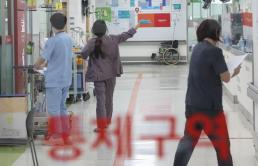
![[르포] 중력 6배에 짓눌려 기절 직전…전투기 조종사 비행환경 적응훈련(영상)](https://image.ajunews.com/content/image/2024/02/29/20240229181518601151_258_161.jpg)
